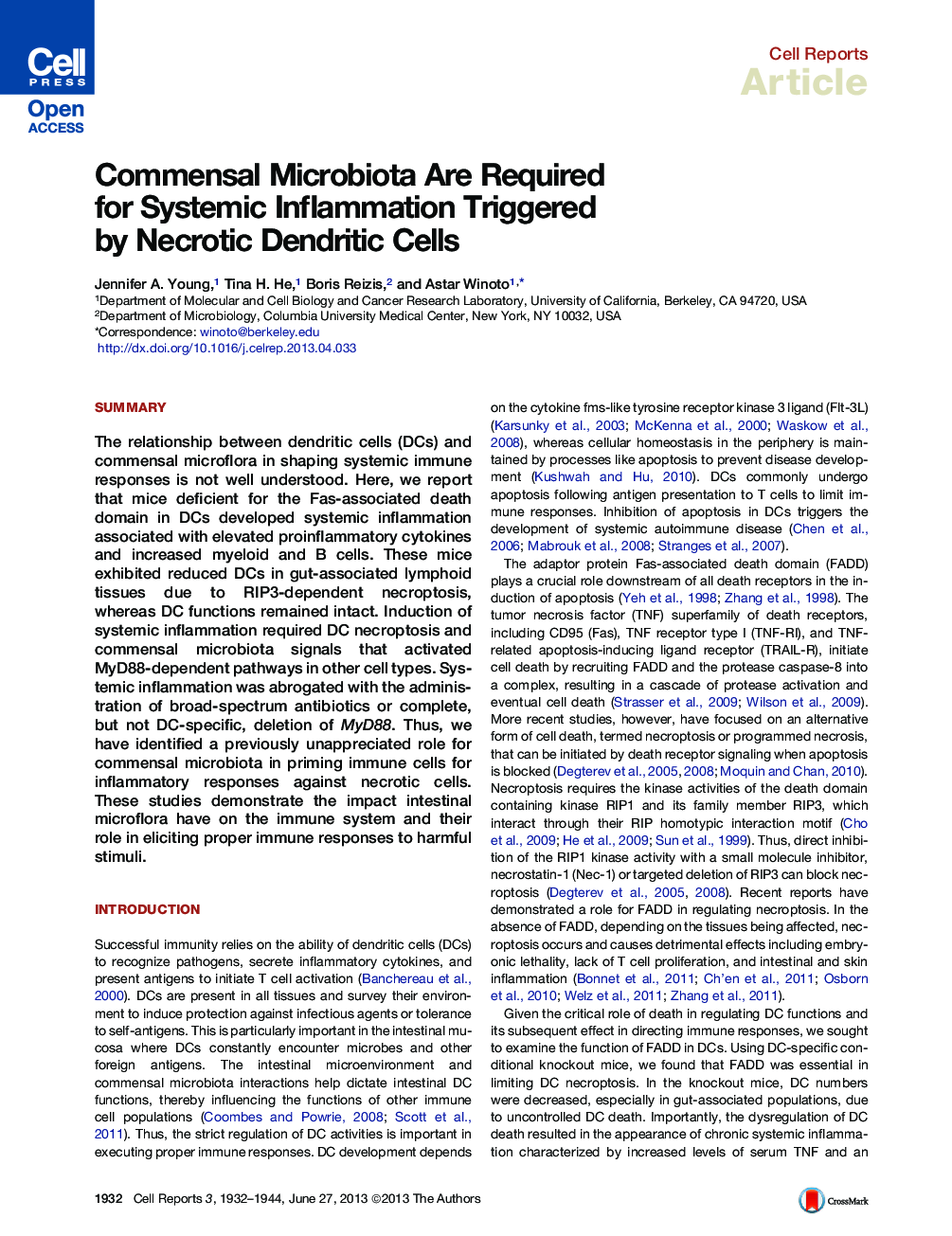| Article ID | Journal | Published Year | Pages | File Type |
|---|---|---|---|---|
| 2040174 | Cell Reports | 2013 | 13 Pages |
•Mice with loss of FADD in dendritic cells (DCs) suffer from systemic inflammation•DCs in gut-associated lymphoid tissues of these mice are greatly reduced•Deletion of RIP3 or antibiotic treatment rescues systemic inflammation•Commensal microbiota are crucial for immunity against harmful stimuli
SummaryThe relationship between dendritic cells (DCs) and commensal microflora in shaping systemic immune responses is not well understood. Here, we report that mice deficient for the Fas-associated death domain in DCs developed systemic inflammation associated with elevated proinflammatory cytokines and increased myeloid and B cells. These mice exhibited reduced DCs in gut-associated lymphoid tissues due to RIP3-dependent necroptosis, whereas DC functions remained intact. Induction of systemic inflammation required DC necroptosis and commensal microbiota signals that activated MyD88-dependent pathways in other cell types. Systemic inflammation was abrogated with the administration of broad-spectrum antibiotics or complete, but not DC-specific, deletion of MyD88. Thus, we have identified a previously unappreciated role for commensal microbiota in priming immune cells for inflammatory responses against necrotic cells. These studies demonstrate the impact intestinal microflora have on the immune system and their role in eliciting proper immune responses to harmful stimuli.
Graphical AbstractFigure optionsDownload full-size imageDownload as PowerPoint slide
